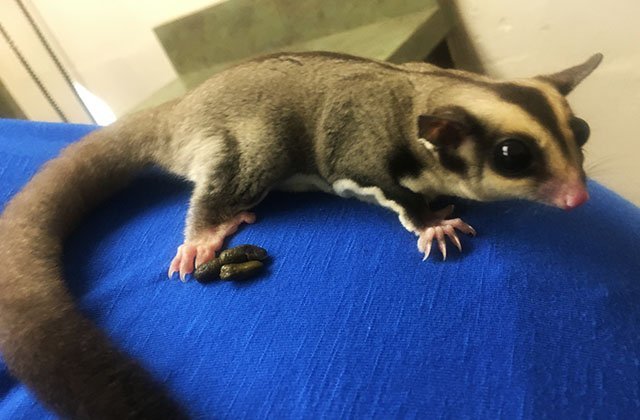Will Sugar Gliders Mate With Their Offspring
Sugar gliders, small and adorable marsupials native to Australia, are known for their unique behaviors and social structure. One common question that arises when discussing these fascinating creatures is whether sugar gliders will mate with their own offspring. In this article, we will delve into this intriguing topic and provide you with all the information you need to know.
Will sugar gliders mate with their offspring?
No, sugar gliders do not mate with their offspring. In the wild, sugar gliders exhibit a complex social structure that involves a dominant breeding pair and their offspring from previous breeding seasons. The adult male sugar glider, known as the sire, plays a significant role in preventing inbreeding by actively discouraging reproductive interactions with his offspring, especially once they reach sexual maturity.
The sire sugar glider achieves this through various means, such as vocalizations, aggressive behavior, and territorial displays. By asserting dominance, the sire effectively limits the chances of inbreeding within the social group.

Social structure of sugar gliders
Before we explore this topic further, let’s first understand the social structure of sugar gliders. These small marsupials live in family groups called colonies or clans. A typical colony consists of a dominant breeding pair, their current offspring, and sometimes older offspring from previous breeding seasons that have not yet left the group.
The dominant breeding pair consists of an adult male (sire) and an adult female (dam) who form a monogamous bond. They are responsible for breeding and raising their offspring together. The offspring born to the dominant pair are called joeys and are cared for by both parents until they are old enough to become independent.
Sugar gliders are highly social animals and rely on their family unit to survive in their natural habitats. The dominant pair plays a crucial role as leaders and protectors of the group, providing guidance and ensuring the well-being of the colony.
Preventing inbreeding in sugar glider colonies
In order to maintain genetic diversity and prevent inbreeding, sugar gliders have developed several reproductive strategies. The sire sugar glider utilizes various means to discourage his offspring from engaging in reproductive behavior within the colony.
1. Vocalizations: The sire produces specific vocalizations that are interpreted as territorial and dominant signals to assert his authority within the group. These vocalizations serve as a warning to other male and female sugar gliders, including his offspring, indicating that they should not engage in reproductive activities.
2. Aggressive behavior: Along with vocalizations, the sire may display aggressive behavior towards his offspring if they attempt to approach him with mating intentions. This aggression helps reinforce the hierarchy within the colony and discourage inbreeding.
3. Territorial displays: The sire also marks his territory using scent glands to establish boundaries and reinforce his dominance. This territorial marking serves as a visual and olfactory deterrent to other sugar gliders, signaling that mating with offspring is not allowed.
Through these behavioral mechanisms, the sire sugar glider maintains a familial structure that minimizes the potential for inbreeding within the colony.
Frequently Asked Questions
Q: Can sugar gliders mate with unrelated gliders?
A: Yes, sugar gliders can mate with unrelated gliders. In the wild, when offspring reach sexual maturity, they disperse from their natal territory to find mates in other colonies. This dispersal helps maintain genetic diversity and prevents breeding between relatives.
Q: Are there any risks associated with inbreeding in sugar gliders?
A: Yes, inbreeding can lead to various health issues and reduced fitness in sugar gliders. Increased susceptibility to diseases, reduced fertility, and higher rates of birth defects are some of the potential risks associated with inbreeding.
Q: Do sugar gliders ever leave their family groups?
A: Yes, sugar gliders do leave their family groups once they reach sexual maturity. They disperse to find new territories and potential mates in order to prevent inbreeding. This dispersal behavior helps maintain genetic diversity within the population.
Final Thoughts
Sugar gliders have a unique social structure that promotes genetic diversity and prevents inbreeding within their colonies. The dominant male sugar glider plays a crucial role in discouraging mating with offspring through vocalizations, aggressive behavior, and territorial displays. Through these mechanisms, sugar gliders maintain a healthy and genetically diverse population in their natural habitats.
Understanding the social behaviors and reproductive strategies of sugar gliders not only gives us insight into their fascinating lives but also highlights the importance of maintaining genetic diversity in wildlife populations. By respecting and protecting their natural behaviors, we can contribute to the long-term conservation of these incredible creatures.







